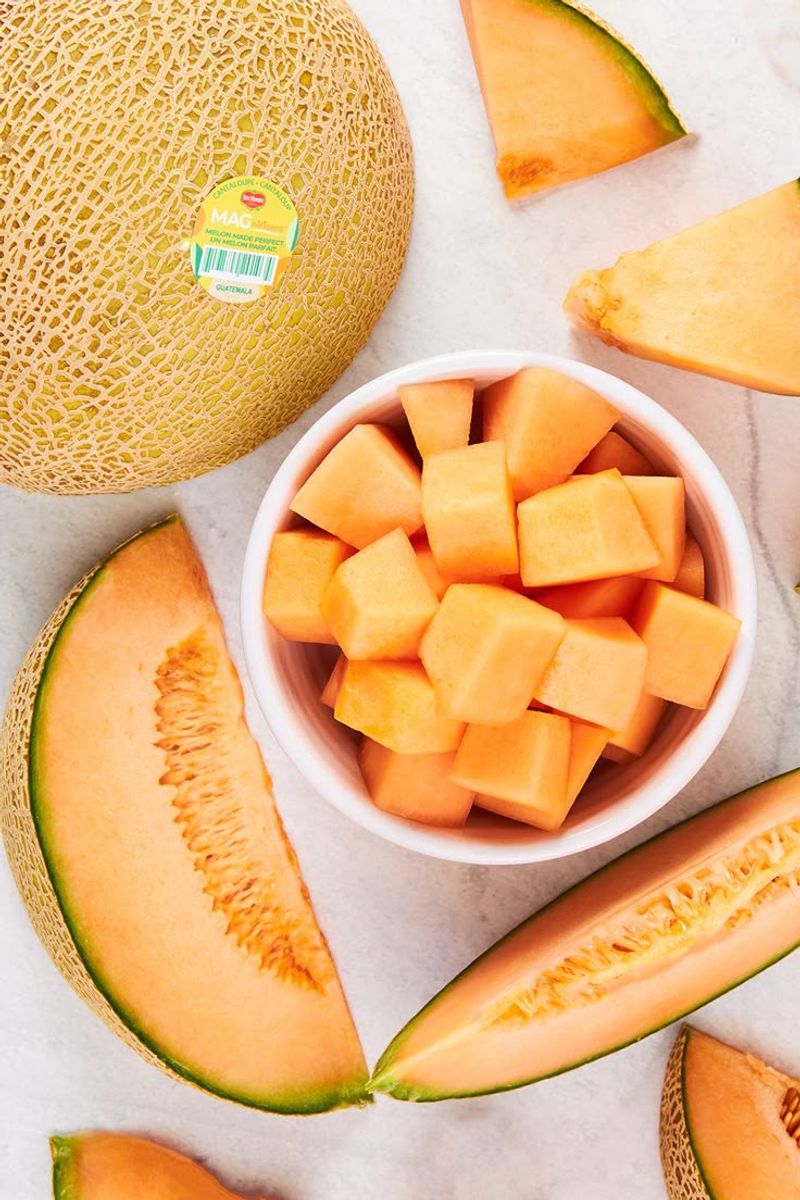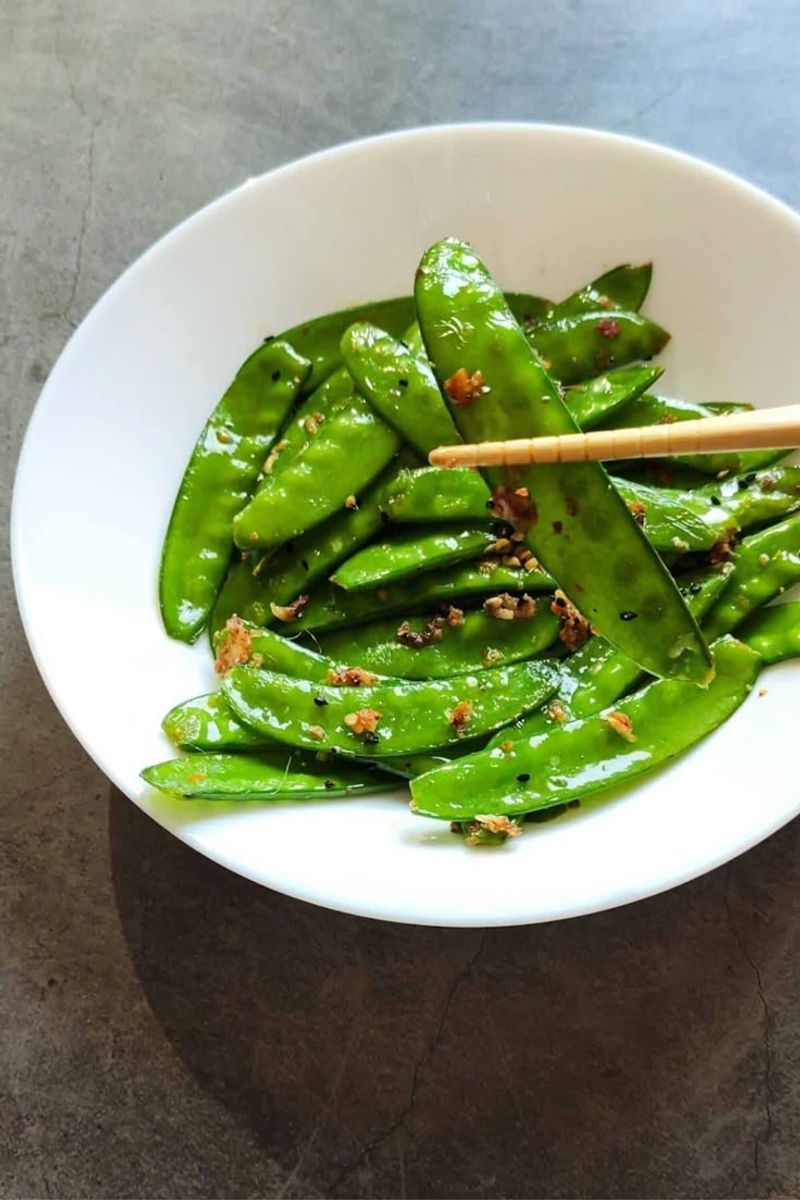When you think of vitamin C, chances are your brain jumps straight to oranges — maybe even a tall glass of OJ with your breakfast. They’ve been the unofficial spokesfruit for immune-boosting power since forever.
But here’s the citrusy plot twist: oranges aren’t actually the top dogs when it comes to vitamin C content.
Yep, you heard that right. While oranges are definitely a solid source (and delicious, don’t get us wrong), there’s a whole world of fruits and veggies out there quietly flexing way harder in the vitamin C department.
We’re talking tropical show-offs, leafy green legends, and even spicy contenders that’ll make you wonder why oranges got all the fame in the first place.
So if you’re looking to shake up your nutrient game, impress your immune system, or just win at fruit trivia, we’ve got your back. Here are 16 foods that pack more vitamin C than an orange — and some of them might already be hiding in your fridge, just waiting to be appreciated.
1. Guava

Guava blows oranges out of the water. Just one of these tropical beauties can give you over 250% of your daily vitamin C needs. Packed with fiber and antioxidants, guavas are a nutritious powerhouse.
Enjoy them fresh, or blend them into smoothies for a refreshing treat. Whether you’re in a tropical mood or just want a health boost, guavas are a top choice. These fruits are not only rich in vitamin C but also offer a substantial amount of folate, which is essential for your body’s overall well-being.
With a taste that’s both sweet and slightly tangy, guavas are versatile enough to be used in a variety of dishes. Add them to your fruit salad or simply enjoy them on their own to reap the benefits.
2. Kiwi

Small but mighty, one kiwi can meet or exceed your daily needs — and they come with fiber and antioxidants, too. Kiwi fruits are often overlooked, but they’re packed with more vitamin C than an orange.
Each bite delivers a burst of tangy sweetness that can brighten up any dish. Known for their fuzzy brown skin, kiwis are perfect for snacking, adding to desserts, or tossing into a fruit salad. Their vibrant green color makes them an eye-catching addition to any plate.
Besides vitamin C, kiwis are also rich in vitamin K and vitamin E. Whether you peel them or eat them with the skin on, kiwis are a convenient, nutrient-dense option. With their unique flavor and numerous health benefits, kiwis are a must-add to your diet.
3. Strawberries

Perfect for smoothies, cereal, or just snacking, strawberries sneak in a surprising amount of vitamin C. These bright red berries are not only sweet and juicy but also offer more vitamin C per serving than an orange.
Whether enjoyed fresh, frozen, or dried, strawberries are a versatile fruit that can enhance any meal. Pair them with your morning oatmeal or blend them into a refreshing smoothie. Along with vitamin C, strawberries are packed with antioxidants that help fight inflammation and promote heart health.
Their natural sweetness makes them a perfect guilt-free dessert. With their popularity and widespread availability, strawberries are an easy and delicious way to boost your vitamin intake. Keep them on hand for a nutritious snack any time of day.
4. Papaya

Tropical, juicy, and loaded with vitamin C — papaya also aids digestion thanks to the enzyme papain. This delicious fruit goes beyond vitamin C, offering a range of health benefits.
Papayas are rich in vitamin A, folate, and fiber, making them a well-rounded choice for a healthy diet.
Enjoy them fresh or add them to fruit salads and smoothies for a tropical twist. Their sweet flavor and vibrant color make papayas a favorite in many households. The enzyme papain helps in breaking down proteins, aiding digestion and reducing bloating.
Papayas are also known for their anti-inflammatory properties, which can be beneficial for people with arthritis. With their impressive nutrient profile and delightful taste, papayas are a fantastic addition to your fruit repertoire.
5. Pineapple

Sweet and tangy pineapple offers a refreshing vitamin C boost with every bite. This tropical fruit is not only delicious but also packed with nutrients that promote overall health.
Pineapple contains bromelain, an enzyme that aids digestion and may help reduce inflammation. Whether eaten fresh, grilled, or juiced, pineapple adds a burst of flavor to any dish. It’s a popular choice for fruit salads and tropical cocktails.
In addition to vitamin C, pineapples are a good source of vitamin B6 and manganese. Their juicy texture and vibrant flavor make them a staple in many cuisines worldwide.
Pineapple’s natural sweetness and health benefits make it a great option for those looking to increase their vitamin C intake while enjoying a tasty treat.
6. Mango

Mangoes don’t just taste like sunshine — they bring a bright burst of vitamin C along with vitamin A. This tropical delight is sweet, juicy, and packed with nutrients that support your immune system and skin health.
Mangoes are versatile; enjoy them fresh, in smoothies, or as a topping for yogurt and desserts. Their rich, creamy texture and vibrant color make them a popular choice for summer dishes. Apart from being high in vitamin C, mangoes are also rich in fiber and antioxidants.
These nutrients help promote digestive health and protect against cellular damage. With their luscious flavor and numerous health benefits, mangoes are a delicious way to meet your daily vitamin C needs. Add mangoes to your diet for a taste of the tropics.
7. Bell Peppers

Red bell peppers are one of the top non-fruit sources of vitamin C. Bonus: they’re great raw, roasted, or stir-fried. These colorful vegetables are not only visually appealing but also packed with nutrients.
Red bell peppers contain more vitamin C than their green and yellow counterparts, making them an excellent choice for boosting your vitamin intake. Add them to salads, stir-fries, or stuff them for a nutritious meal.
Besides vitamin C, bell peppers are also high in vitamin A and potassium. Their sweet flavor and crunchy texture make them a versatile ingredient in many dishes.
8. Broccoli

A cruciferous powerhouse that delivers vitamin C along with fiber and cancer-fighting compounds. Broccoli is a staple in many kitchens, known for its versatility and health benefits.
Whether steamed, roasted, or added to soups and stir-fries, broccoli offers a delicious way to boost your vitamin C intake.
This green vegetable is also rich in vitamin K, folate, and potassium. Its high fiber content aids digestion and supports heart health.
Broccoli’s cancer-fighting properties are attributed to compounds like sulforaphane, which may help reduce the risk of certain cancers.
9. Brussels Sprouts

These little green cabbages are more than just trendy — they’re vitamin C bombs when steamed or roasted.
Brussels sprouts are often featured in gourmet dishes, thanks to their unique flavor and nutrient profile. They’re loaded with vitamin C, making them a great addition to any diet.
Whether you enjoy them roasted with olive oil and spices or steamed with a touch of lemon, Brussels sprouts are delicious and nutritious.
In addition to vitamin C, they provide vitamin K, folate, and fiber. These nutrients contribute to bone health and aid in digestion. Brussels sprouts are also rich in antioxidants, which help protect cells from damage.
10. Kale

Your green smoothie’s best friend. Kale packs vitamin C, iron, and calcium all in one leafy package. This nutrient-dense green is a favorite among health enthusiasts and for good reason.
Kale’s vitamin C content surpasses that of an orange, making it an excellent choice for those looking to boost their immune system naturally. In addition to vitamin C, kale is rich in fiber, which promotes digestive health.
Its high iron and calcium content make it a valuable addition for those looking to support bone health. With its slightly bitter taste and impressive nutrient profile, kale is a powerhouse green that deserves a place in your kitchen.
11. Chili Peppers
A spicy way to boost your immune system — and your metabolism — all in one go. Chili peppers are not only known for their fiery heat but also for their impressive vitamin C content.
Green chili peppers, in particular, pack a punch with more vitamin C than an orange. Whether you add them to sauces, salsas, or stir-fries, chili peppers bring a flavorful kick to any dish.
Besides vitamin C, they contain capsaicin, a compound that may help reduce inflammation and support weight loss. The heat from chili peppers can also promote cardiovascular health by improving circulation.
12. Mustard Greens

These peppery greens are underrated vitamin C champions. Try them in salads or lightly sautéed. Mustard greens are a flavorful addition to any meal, offering a rich source of vitamin C that can rival an orange.
Their slightly spicy taste adds an exciting twist to salads and cooked dishes. In addition to vitamin C, mustard greens provide vitamin K, which supports blood clotting and bone health. They’re also rich in antioxidants, which help combat oxidative stress and reduce inflammation.
Their unique flavor and high nutrient content make them a standout among leafy greens.
13. Cantaloupe

Hydrating and sweet, cantaloupe is a juicy way to sneak in some extra nutrients. This refreshing fruit is not only delicious but also packed with vitamin C.
Whether enjoyed on its own, in fruit salads, or blended into smoothies, cantaloupe offers a delightful way to boost your vitamin intake. In addition to vitamin C, cantaloupe is a good source of vitamin A, which is essential for eye health.
Its high water content makes it a hydrating choice, perfect for hot summer days.
14. Snow Peas

Crunchy and fresh, snow peas are a crisp, snackable veggie that can rival an orange’s C content when eaten generously. These tender pods are perfect for snacking, adding to stir-fries, or tossing into salads for a satisfying crunch.
Snow peas are not just a tasty addition to your meals; they’re also packed with nutrients that support overall health. In addition to vitamin C, snow peas are a good source of fiber, which aids digestion and promotes heart health.
Their mild, sweet flavor makes them a popular choice for both adults and children. Snow peas are low in calories and high in vitamins, making them an ideal choice for those looking to improve their diet without sacrificing taste.
15. Acerola Cherries
Yes, you read that right. These little cherries are one of the most concentrated natural sources of vitamin C on Earth. Acerola cherries provide an astonishing amount of vitamin C, way beyond what an orange can offer.
These small, tart fruits are often used in juices, supplements, and smoothies for a potent vitamin boost. Besides vitamin C, acerola cherries contain vitamin A and antioxidants that promote skin health and boost the immune system.
Their tangy flavor and high nutrient content make them a sought-after ingredient in health products. While fresh acerola cherries may be hard to find, their juice and extracts are widely available.
16. Lychees

Sweet, floral, and juicy — lychees are a delicious way to get well over your daily dose of vitamin C. These exotic fruits are not only tasty but also offer a substantial amount of nutrients that promote health.
Lychees are rich in antioxidants, which help protect cells from damage and support the immune system. Their unique flavor and juicy texture make them a delightful addition to fruit salads, desserts, and cocktails.
In addition to vitamin C, lychees provide copper and potassium, which are essential for heart health.


Leave a comment